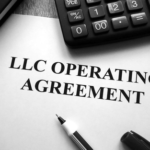In 1996, the football world was gripped by the drama of NFL draft prospect Frank “Cush” Cushman. For those who don’t remember, Cushman was a quarterback from Southern Methodist University and the consensus #1 pick in that year’s draft. The only drama was whether he would be drafted by the Denver Broncos or the San Diego Chargers.
Jerry Maguire, our hero in this story, was a sports agent who was fired from Sports Management International (SMI) and set out to stake his own claim in the industry. Maguire tried desperately to hold on to as many SMI clients as he could. This included Cush, whose draft stock and eventual payday would make a nice commission for our hero.
Maguire made a visit to the Cushman home and sealed the deal with Mr. Cushman with The Handshake. (For all you naysayers, Mr. Cushman was acting as Cush’s agent at the time and his actions would be binding on Cush.) The pivotal moment happened when Mr. Cushman looked at Maguire with all the sincerity of your favorite uncle and said, “You know I don’t do contracts. But what you do have is my word. And it’s stronger than oak.” Contract attorneys everywhere had their alarm bells going off.
Fast forward a few months to the night of the NFL draft. Maguire was enjoying the big moment with the Cushman family. Everyone was in suspense over which team will take Cush. Maguire took this opportunity to put The Handshake agreement down in writing. Mr. Cushman hesitated. Finally, he told Maguire that Cush signed with Bob Sugar, Maguire’s rival and former coworker at SMI, an hour earlier. Sugar was now Cush’s agent instead of Maguire…and the existential crisis continued.
What was our hero to do? For the sake of this blog, we are going to assume that the Cushmans lived in North Dakota, where The Handshake occurred. North Dakota follows a “statute of frauds” that states certain contracts must be in writing. These contracts include agreements that are not to be performed within one year of the agreement, a promise to answer for the debt of another, a real estate lease for longer than one year, a real estate sale, a loan of $25,000 or more, or an agreement to alter the terms of a debt that is worth $25,000 or more. Fortunately for Maguire, The Handshake did not fall into one of these categories.
How does Maguire enforce The Handshake? First, The Handshake has to meet a few key contract elements:
- The parties must be capable of forming a contract. Maguire, Cush, and Mr. Cushman were all over the age of 18 and of sound mind. Good here.
- The parties must consent to enter into the contract and agree to its terms. This is often referred to as a “meeting of the minds.” If any consent is obtained through duress, fraud, undue influence, or mistake, consent is deemed not given and the contract may be canceled. Maguire and Mr. Cushman, who was acting on behalf of Cush, consented that Maguire would be Cush’s agent and was entitled to a commission. The specific terms were never ironed out during The Handshake, but that was not required for consent.
- The object of the contract is the thing agreed to by the party receiving consideration. Maguire promised to act as Cush’s agent and get him the best deal possible with either Denver (preferably) or San Diego.
- Consideration, or something of value, is given by one party. In exchange for Maguire’s promise to act, Cush was to pay Maguire compensation, probably based on a percentage of Cush’s contract, signing bonus, or both.
- Offer and acceptance. We wouldn’t be talking about The Handshake if an offer wasn’t proposed by Maguire and accepted by Mr. Cushman.
It looks like The Handshake meets all the elements required to form a legally binding contract. But Maguire’s contract is a verbal agreement. How does Maguire overcome the fact that Sugar’s agreement with Cush is in writing?
Under certain circumstances, a contract, verbal or written, can be rescinded or canceled. In order to do this, the party terminating/rescinding/canceling the contract must do certain things. The party could show the contract was formed under duress, fraud, undue influence, or mistake. The party could show the other party failed in its obligation to perform under the terms of the contract. Or the parties may agree to terminate the contract.
It does not appear that Cush or his family took any steps to rescind or cancel the verbal contract with Maguire. Maguire assumed he was Cush’s agent up until the moment Mr. Cushman told Maguire that Cush signed with Sugar an hour earlier.
To enforce The Handshake, Maguire has to show that he performed his obligation according to the understood terms of the agreement. During the conversation in the Cushmans’ home, Maguire, Cush, and Mr. Cushman discussed which team would draft Cush. Mr. Cushman made it known that he preferred Denver. Maguire then worked with Denver to get their contract offer up to $20 million dollars. Maguire did this with the belief that Denver would draft Cush #1, Cush would sign his player contract with Denver, and Maguire would take his commission.
Maguire can now argue that Cush breached the verbal contract and seek to enforce the agreement in court. If successful, Maguire may be able to recover damages for the amount of lost commission, but probably cannot seek termination of the contract between Cush and Sugar.
Maguire’s biggest hurdle will be an accurate recount of The Handshake terms. Lucky for him there is video evidence. It’s a safe bet that nearly all handshake agreements in the real world were not audio or video recorded. The sooner the terms of an agreement are put down in writing, the better chance the parties have of actually remembering them.
The obvious lesson we can learn from Maguire is to put all agreements in writing. This, however, is hard to do on the golf course. If you need an agreement reduced to writing, or you need to enforce the terms of a verbal agreement, contact our Business Law Team by calling 701-297-2890, or send us an email below.
The information contained in this article and on this website is for informational purposes only and not for the purposes of providing legal advice. You should contact an attorney to obtain advice with respect to any particular issue or problem.










